
https://talloiresnetwork.tufts.edu/universities-as-frontline-responders/
We acknowledge that the concept of universities as frontline responders is situational and contextual; accordingly, the initiative will bring together higher education leaders of the Global Majority who will share their experiences on the frontline with communities. Working hand-in-hand with leaders at American University of Beirut (Lebanon), Ashesi University (Ghana), Brac University (Bangladesh), National University of Science and Technology (Pakistan), and others, this initiative seeks to encourage universities to lead as bold and nimble civic actors who partner with communities to respond swiftly and intelligently to unexpected societal challenges.
Throughout 2023, we will gather, listen to, and document voices from the margins – exploring different models of universities as frontliner responders. Together we will co-design an international gathering to explore the role of universities and share different models of universities as frontline responders. Approximately 30 participants from the Global Majority –network members and partners, university heads, student leaders, and leaders in philanthropy– will contribute to the dialogue and exchange in mid-October. By year’s end, we will synthesize the ideas and strategies of university frontline responders to articulate imperatives for the international higher education sector.
About
The Talloires Network of Engaged Universities is a growing global coalition of 431 university presidents, vice-chancellors and rectors in 86 countries who have publicly committed to strengthening the civic roles and social responsibilities of their institutions. It is the largest international network focused particularly on university civic engagement.
Initiative Co-Leaders
Samia Huq is Dean of the School of General Education and Professor of Anthropology at Brac University, Bangladesh. She obtained her PhD from Brandeis University, USA, looking at women’s religious discussion groups in urban Bangladesh. As Dean of the core curriculum, her task in to build and consolidate the liberal arts and sciences in general education and inter-departmental offerings through the creation and curation of courses, embedding a liberal arts teaching and learning and building co-curricular pathways for civic engagement and leadership as essential ingredients of the Brac U student experience. Dr. Huq is also Research Fellow at the Center for Peace and Justice (CPJ) at Brac University where she runs the project on Faith and Development in collaboration with the World Faiths Development Dialogue at Georgetown University. As part of the project, Dr Huq is exploring the intersection of faith and development around questions of education, gender equality and aspirations of the youth, facilitating dialogues between faith inspired and secular development actors on these issues. Dr. Huq has been involved in research on the impact of secondary secular and madrasa education on gendered norms and practices, as part of the Initiative on Education, Gender and Growth in Asia http://www.integgra.org/index.php, authored and involved in the International Panel for Social Progress https://www.ipsp.org/ and Musawah https://www.musawah.org/. Dr. Huq is the Chief Academic Officer (CAO) representing Brac University at the Open Society University Network (OSUN) https://opensocietyuniversitynetwork.org/, building bridges between various Brac U academic programs and universities within OSUN and overseeing student and faculty mobility and other exchanges between Brac U and OSUN partners. Dr. Huq also sits on the board of several national NGOs and think tanks. She is author of several peer reviewed journal articles, book chapters and currently working on her monograph on women, Islam and modernity in Bangladesh.
Rabih Shibli, architect and designer of the Ghata structure, is the Director of the Center for Civic Engagement and Community Service (CCECS) at the American University of Beirut (AUB) in Lebanon. At AUB, Rabih develops programs and strategies that create a nexus between the university, stakeholders, and targeted communities with an overarching objective of fostering relief, reconstruction, and recovery processes in complex settings. His passion for community development was sparked following the July 2006 War, when he founded and directed Beit Bil Jnoub (“House in the South”), a non-governmental organization that was heavily involved in the reconstruction process in partnership with UN-HABITAT and three unions of municipalities in South Lebanon. Since then, he has continued to conceptualize and implement innovative development projects and authored publications reflecting the impact of participatory design as a process to induce hope in marginalized and contested landscapes. Under his leadership, the AUB-CCECS was awarded the Most Civically Engaged University Campus in the Middle East and North Africa region (MENA) by Ma'an Alliance, and the MacJannet Prize for Global Citizenship from Tufts University for interventions engaging refugees and host communities within the sectors of education, shelter, sanitation, psychosocial wellbeing, and food security. Rabih holds a BA in Architecture, MA in Urban Design, and a Program Certificate in Refugee Trauma.
Frontline Leaders Working Group
Samuel Jude Acquaah is Assistant Director for Outreach and Experiential Learning Programs at Ashesi University, Ghana. His role involves growing and deepening Ashesi’s impact in communities across Ghana. Among others, he led the Fund for Service to Children and Youth program which involved over 120 distinct student-centered projects that directly served over 6,000 disadvantaged children and youth across Ghana. Jude is on the advisory board of Tieme Ndo, a social enterprise that supports over 7,000 small-holder farmers in northern Ghana to improve incomes through better yield. Before Ashesi, Jude worked with the Ghana Center for Democratic Development (CDD-Ghana) as a research and programs affiliate. He studied Political Science at the University of Ghana, Legon.
Nurzhamal Karamoldoeva, born in Bishkek, has a B.S. in Accounting from Truman State University (MO, USA) and M.B.A. from State Governance Academy under President of the Kyrgyz Republic. She worked at the World Bank Country Office in Kyrgyzstan coordinating development projects in Environmentally and Socially Sustainable Development department for 6 years. After leaving the Bank she has explored visual storytelling as a tool to raise awareness for social matters. Nurzhamal is an award-winning documentary filmmaker who explores the intersection of art and human rights through her creative work. Her recent work includes the first Central Asian true crime documentary on a bride kidnapping case “Who is next?” In 2018 she joined TV, Film and Media Arts department of the American University in Central Asia as an assistant professor. She presently teaches an OSUN collaborative class on Visual Storytelling for Civic Engagement. Since January 2020, Nurzhamal has held the position of an Executive Director at the Center for Civic Engagement of AUCA. She oversees different community engagement activities initiated by students, faculty and staff. Under her leadership the Center has become a pioneer of civic engagement among Kyrgyzstani’s academic institutions contributing to AUCA‘s positive image of a regional champion in education.
Elisa Manríquez Hörmann is a community social psychologist with a professional degree in psychology obtained from the Pontifical Catholic University of Chile. She is the current Coordinator of Community Engagement at the Faculty of Social Sciences of the Pontifical Catholic University of Chile. Her role is focused on promoting the development of networks and cooperation with public and private institutions, such as community organizations, universities, government, and the business world, among others, in order to contribute to the community engagement efforts and mutual transformation between the Faculty of Social Sciences and its collaborators. Her responsibilities include coordinating the “COLABORAR” Project at the same faculty, where she has established strong relationships with social organizations and coordinated academic activities in the troubled neighborhoods of La Legua, San Joaquín commune, promoting the participation of more than 2500 students since 2019. She has also served as a regional coordinator at Panal Educational Advisory Foundation, dedicated to promoting socio-emotional development in schools with high socioeconomic vulnerability. Additionally, she has been a coordinator of projects in the field of "Adolescent Participation and Education in Global Solidarity" at America Solidaria International Foundation.
Maheen Mumtaz is the Assistant Manager Community Services at National University of Sciences & Technology (NUST), Pakistan. She oversees the community services program at NUST which includes a very active student-led club, NUST Community Services Club (NCSC), which has over 1000 active volunteers working in various areas of community service ranging from disaster management, health & hygiene, leadership & awareness and education for empowerment. She also spearheads the Pakistan chapter of The Talloires Network of Engaged Universities- a consortium of 74 Pakistani universities sharing their knowledge and activities of civic engagement. Her main focus is working with students from diverse backgrounds and providing them with the opportunities and support they need to become social development agents and to continue giving back to their society even after they graduate. Maheen holds an MBA in Marketing, and her research areas include sustainable marketing, civic engagement and corporate social responsibility.
- 935 reads



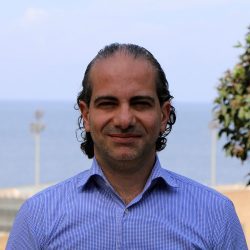
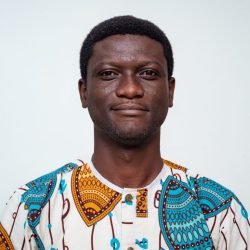
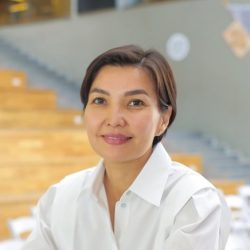
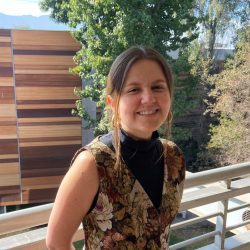
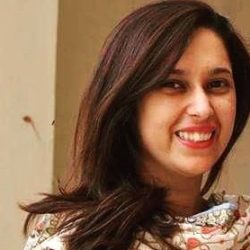








Add new comment